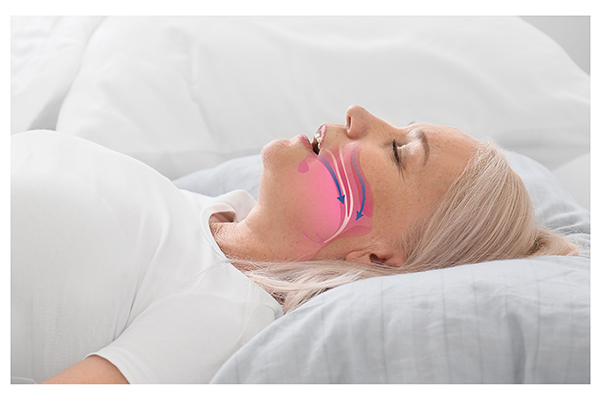Reasons to Treat Sleep Apnea With a Dental Oral Appliance

Wondering how to treat your sleep apnea? This sleep disorder causes you to stop breathing during the night, which is caused by either your tongue or excess tissues blocking the back of your throat. Common signs associated with this condition include snoring, headaches, a dry throat, grinding or clenching teeth, mood swings, feeling tired and gasping for air during the night.
Oral appliance therapy
Understanding the oral appliance therapy options for treating sleep apnea is necessary when you have been diagnosed with sleep apnea. The fact that there are a few different types of oral appliances available makes it a good idea for you to understand how each type of oral appliance works. Common types of dental oral appliances include a CPAP machine, a mandibular advancement device and a tongue-retaining device.
According to the American Academy of Dental Sleep Medicine, oral appliance therapy is an effective treatment option for snoring and obstructive sleep apnea, as a custom-fit oral sleep appliance can improve your sleep, restore your alertness and revitalize your health.
Reasons to treat sleep apnea with a dental oral appliance
The list below includes common reasons for using a particular type of oral appliance in order to treat this common sleep disorder.
#1. Reasons to use a CPAP machine
Why treat sleep apnea with a CPAP machine? One reason that sleep apnea patients are choosing this type of dental oral appliance is that it allows them to get a restful night's sleep. Two additional reasons include that CPAP machines are easy to use and provide users with a sufficient amount of air during the night to support their good overall health.
#2. Reasons to use a mandibular advancement device
Mandibular devices are also known as dental sleep devices. The reason sleep apnea patients are choosing this type of oral appliance is that it keeps their airway open during the night, allowing them to breathe easier. This particular device moves the lower jaw forward, which in turn, helps keep the tongue from blocking the throat when sleeping.
Are you in need of a dental oral appliance?
When you are diagnosed with MILD or MODERATE sleep apnea, this potentially serious sleep disorder is one that requires treatment. Since there are a few different types of treatments available for those who have been diagnosed with sleep apnea, it is important to choose one that is right for you. When you make an appointment with us, you will learn everything there is to know about the oral appliances that can treat your sleep apnea.
Request an appointment here: https://joyfuldentalcare.com or call Joyful Dental Care at (773) 736-7767 for an appointment in our Chicago office.
Check out what others are saying about our dental services on Yelp: Do I Have Sleep Apnea in Chicago, IL.
Related Posts
Obstructive sleep apnea is the most common form of apnea and causes the upper airways to become partially or completely blocked during sleep. During an episode, the pressure to open the airway increases and causes the chest muscles to work harder. When breathing resumes, it may cause the person's body to jerk, which leads to…
Sleep apnea affects tens of millions of American adults. Without an effective treatment solution, obstructive sleep apnea can cause symptoms that affect the patient negatively at night and throughout each day. The good news is that there are effective treatment solutions for sleep apnea. In this review, we discuss the most popular options from a…
Dental sleep medicine is a specialized field in general dentistry. It applies knowledge on the oral appliance theory for a sleep-disordered breathing treatment. As such, loud snoring and the different types of sleep apnea are examples. Resting is relaxing, yet it becomes irritating when you find yourself drifting away with the loud snoring sound of…
Going in for a dental checkup might not be at the top of your priority list, but it should be. There could be many reasons why you have not been to the dentist’s office for a year or longer. Life can get busy, or you may have fears or anxieties about these visits. Whatever has…



